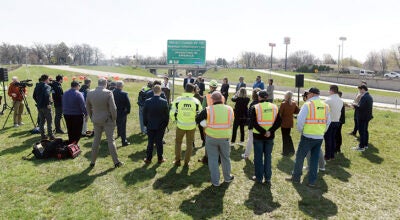USDA approves Minnesota to start accepting SNAP benefits online
Published 3:01 pm Saturday, May 9, 2020
|
Getting your Trinity Audio player ready...
|
U.S. Secretary of Agriculture Sonny Perdue has announced the approval of a request from Minnesota to provide online purchasing of food to Supplemental Nutrition Assistance Program (SNAP) households.
This approval will allow states to expedite the implementation of online purchasing with currently authorized SNAP online retailers with a target start date to be announced at a later time. Minnesota’s SNAP participation is nearly 400,000 individuals, nearly 200,000 households, and totals over $500 million annually in federal funding.
SNAP online purchasing is currently operational in Alabama, Iowa, Nebraska, New York, Oregon, and Washington State. The authorized retailers working with all states are Amazon and Walmart, while Wrights Market and ShopRite are working with Alabama and New York respectively. USDA previously announced Arizona, California, Florida, Idaho, North Carolina, the District of Columbia, West Virginia, Kentucky, Missouri, Texas, and Vermont would also be implementing online purchasing in the near future. With these states, more than half of all households receiving SNAP will have access to online purchasing.
Multiple stakeholders – notably, state agencies, their third-party processor, and any retailers that wish to participate – must work together to implement online purchasing using SNAP benefits. To ease the process, FNS put together a simplified template for states that want to operate online purchasing and provided guidance to interested retailers, which is available online.
Until states are prepared to operate the pilot, USDA recommends utilizing other options that retailers may already provide, such as Pay at Pick-up (also known as “Click and Collect”), where SNAP cardholders can shop online and then pay for their purchase using their EBT card at pick-up. Grocery pickup is already an option that these retailers offer beyond SNAP so they are already thinking through how they can provide a safe environment to do so with the growing concerns around social distancing.





